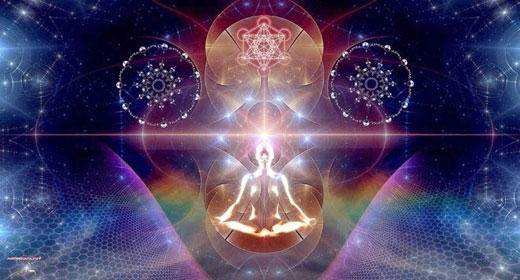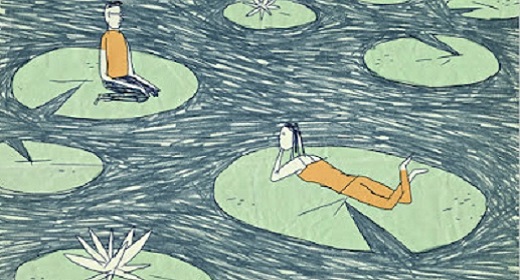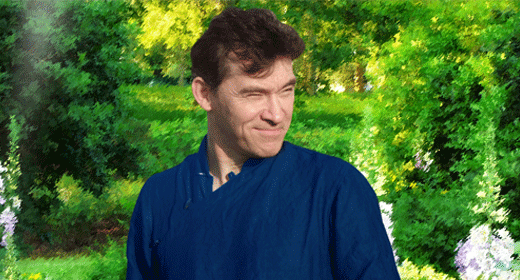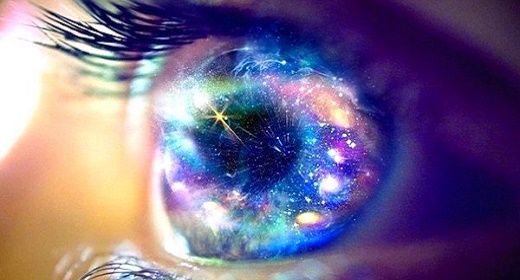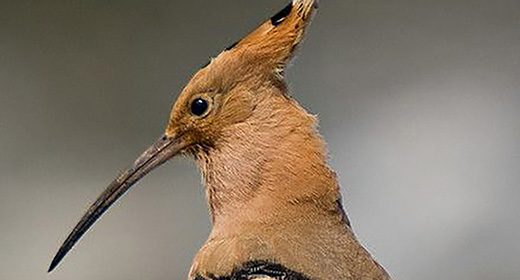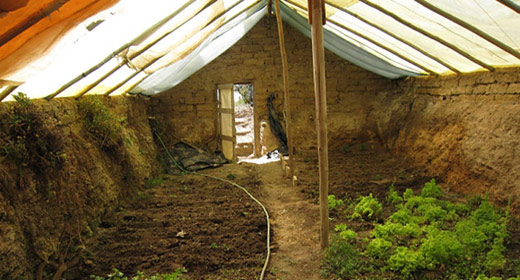by Azreal Rashel: The mainstream view of an enjoyable life is often steeped in materialism…
It’s portrayed by the glossy images of fabulous people, beautiful homes, travel to exotic places and dinners in expensive restaurants. Wealth is often seen as the gateway to an enjoyable life. Yet happiness experts have discovered that most times, the simpler your life is, the happier you are. Studies show that contentment arises from uncomplicated family values, spiritual connection and altruism.
Most of us have realised by now that true happiness and enjoyment of life happens when we are connected to ourselves and others, and are leading meaningful lives. This happens mostly when we serve others and focus less on ourselves. Many studies on altruism show it is key to inner happiness. We’ve all heard spiritual teachers talk about ‘being in the present,’ ‘letting go’ or ‘not sweating the small stuff,’ but how do we actually put all this into practice in the real world of enormous pressure and the constant stream of crazy demands made on us?
Well-loved nun and international teacher, Pema Chödrön, explains something she heard Leonard Cohen say about the self, which relates profoundly to inner contentment.
He meditated all those years at Mt. Baldy Zen Center, often for twelve hours at a time. In an interview, he said his storyline just wore itself out. He got so bored with his dramatic storyline. And then he made the comment, “The less there was of me, the happier I got.”
Pema Chödrön goes on to explain what this really means.
This is actually a big point, because the less there is of you, the more you’re interested in and curious about other people. Who you live with and who you rub up against and who you share this world with is a very important part of enjoying your life.
That’s the answer to how to enjoy your life. It’s to show up and have a sense of curiosity about whatever might appear that day, including it all in your sense of appreciation of this precious human birth, which is so short. I don’t want to call it delight, although it can feel like that. It’s more curiosity. Some people say, I know what’s going to show up today—the same old thing. But it’s never really the same old thing. Even in Groundhog Day, every day was a different experience for Phil, until finally he learned that caring about people was the answer.
We only exist in relation to everything else. Our very nature is dependent on relationships. If your relationships aren’t happy ones, your life can be a living hell. So it’s vital to invest time in close and meaningful connections.
Sartre said, “Hell is other people,” but this is the other view of that. When people irritate you, when they get your goat, when they slander you, whatever it might be, you still have a relationship with them. It’s interesting that of all the billions of people on the Earth, they’re the particular ones who came into your world. There’s respect for whatever happens, and this is only really possible if you’re not rejecting whole parts of your experience.
 IT’S VITAL TO INVEST TIME IN CLOSE AND MEANINGFUL CONNECTIONS.
IT’S VITAL TO INVEST TIME IN CLOSE AND MEANINGFUL CONNECTIONS.Too often we get caught up in wanting things to be perfect, neat, tidy, perpetually happy and unchanging. Yet, this is not life. Everything is in flux. Nothing stays the same. The only constant in life is change. True happiness comes from being utterly comfortable with change. With being able to be content no matter the external circumstances. Your contentment is an inner glow independent of the outside world.
So much of enjoying life is radical acceptance. The ability to accept and ‘be with’ whatever is happening in your world. Too often we fight, discount, rage against and desperately try to change things we have no control over. This causes tremendous struggle and is in itself a kind of madness. Acceptance doesn’t mean you like what’s happening to you, but it does show a level of peace, out of which can arise wisdom, hope, clarity and solutions.
There is a story of a woman running away from tigers. She runs and runs and the tigers are getting closer and closer. When she comes to the edge of a cliff, she sees some vines there, so she climbs down and holds on to the vines. Looking down, she sees that there are tigers below her as well. She then notices that a mouse is gnawing away at the vine to which she is clinging. She also sees a beautiful little bunch of strawberries close to her, growing out of a clump of grass. She looks up and she looks down. She looks at the mouse. Then she just takes a strawberry, puts it in her mouth, and enjoys it thoroughly. Tigers above, tigers below. This is actually the predicament that we are always in, in terms of our birth and death. Each moment is just what it is. It might be the only moment of our life; it might be the only strawberry we’ll ever eat. We could get depressed about it, or we could finally appreciate it and delight in the preciousness of every single moment of our life. ― Pema Chödrön
 LEARN TO BE PRESENT AND GO WHERE LIFE WANTS TO TAKE YOU.
LEARN TO BE PRESENT AND GO WHERE LIFE WANTS TO TAKE YOU.Too often life is viewed as a struggle–to make a ‘living’ or accomplish things, or ‘get somewhere.’ And so we miss the intense beauty and ecstasy of this gift of life: the jewelled night sky, a dolphin swimming in the ocean at sunset, a child’s laugh, or the supreme majesty of nature. Life in all its pain, glory and chaotic brilliance, is a wonderful thing if you learn to be present and go where it wants to take you.
We think that the point is to pass the test or overcome the problem, but the truth is that things don’t really get solved. They come together and they fall apart. Then they come together again and fall apart again. It’s just like that. The healing comes from letting there be room for all of this to happen: room for grief, for relief, for misery, for joy. ― Pema Chödrön.

